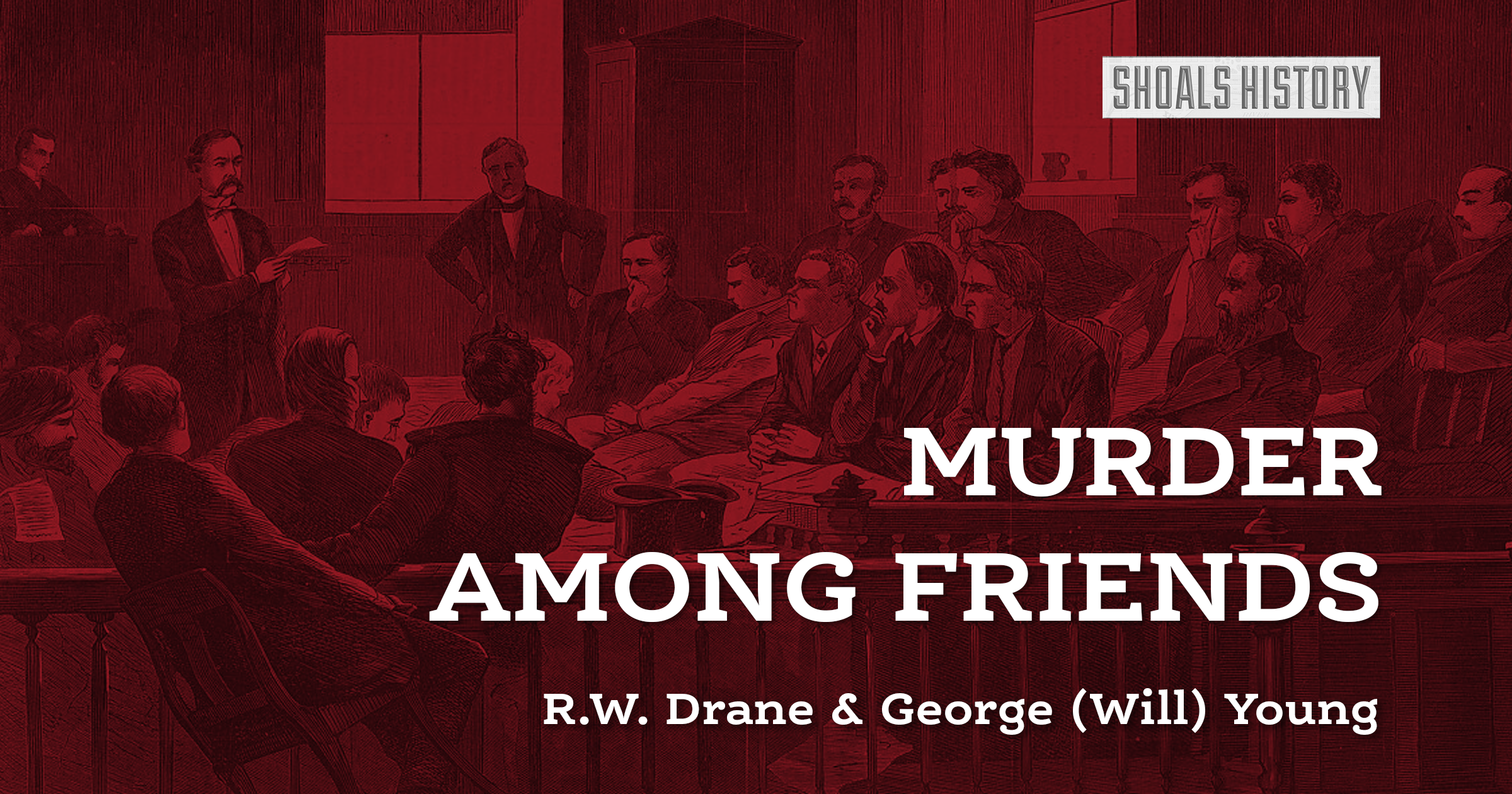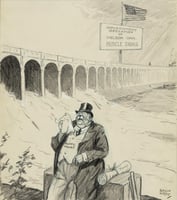Florence, Alabama boasts a vibrant past that extends beyond its river heritage and even its musical...
R.W. Drane & Murder Among Friends: Tragedy Unveiled

PART 2 of 3 in a special series about the life and business of R.W. Drane
R.W. Drane, a prominent local merchant and the proprietor of a cigar store and pool room, and Mr. George (Will) Young, a prominent furniture merchant, were thrust into a harrowing drama that played out in downtown Florence in the Spring of 1912. Both men being very prominent downtown merchants, were very close friends with each other and often spent time with each other's families or helping each other out in their storefronts. As the clock struck 3 o'clock on a fateful Tuesday afternoon in 1912, the echoes of a shotgun rang through the air, forever altering the fates of these two once-intimate friends.
An Eyewitness to the Shooting
The Chief of Police, W.W. Lemay, was an eyewitness to the shooting, having passed Mr. Drane on the sidewalk immediately before it occurred. As he passed Mr. Drane he noticed that he had a shotgun, and having just previously seen Mr. Young on the street nearby, it immediately flashed on his mind that trouble was ahead. In a desperate attempt to intervene he turned and quickly asked Mr. Drane where he was going with the gun. He replied “I am not going anywhere with it,” but at the same time was raising the gun to his shoulder.
Chief Lemay rushed to him, but before he could reach him the gun was fired. The Chief had his hand on the gun before Drane had time to lower it from his shoulder. At the same time the Chief saw Mr. Young crumpled to the pavement with the shotgun shot having pierced his liver and bowels.
Dark Details Emerge
As the town grappled with the aftermath, the dark details emerged. Drane, armed with a shotgun and two pistols, was swiftly apprehended and escorted to the office of Sheriff Dowdy. Meanwhile, Young's children who witnessed this horror, ran home to share the heart-wrenching news of their father's demise with their mother.
Young, severely wounded and surrounded by concerned citizens, was rushed to nearby Smith Brothers Furniture Co., where medical aid was administered. Alas, the severity of the injuries proved insurmountable, and at 9:35 o'clock that evening, Mr. Young succumbed to the wounds that Drane’s shotgun had inflicted upon him.
The mourning town gathered for the funeral, held at the Young’s residence on South Pine Street, as Reverend G.F. Bell sought solace in a service that echoed with grief. Mr. Young left behind a grieving wife and two children, marking the end of a life cut short in the most tragic circumstances.
As the community grappled with the shock, the story took an unexpected turn during R.W. Drane's trial. In a courtroom filled with tension, Drane recounted the alleged wrongs that led him to take the life of his former friend. The narrative revealed a tangled web of family troubles, betrayal, and a heart-wrenching ultimatum.
Caught in a Compromising Situation
R.W. Drane told how their two families were on intimate terms and how on a night, about a month before the killing, Young was at Drane’s store assisting him to wait on customers. Young left at 10 o’clock that evening and twenty minutes later Drane went home. As he came near his bedroom he heard the voice of Young begging Mrs. Drane to elope with him. Entering he found Young seated on his wife’s bed, she having already retired for the night. Drane said his wife was crying. He said he picked up a chair and started towards Young, when Young stuck his hand in his hip pocket and said, if Drane approached he would kill him.
The trial unfolded, witnesses recounting the night when Drane discovered Young in that compromising situation with his wife. The courtroom listened in disbelief as it was revealed that Drane's actions were possibly driven by a moment of insanity. A dozen witnesses attested to Drane's altered state of mind, painting a portrait of a man driven to the brink.
The Verdict is Announced
After two and a half hours of deliberation in that 1912 courtroom, the jury delivered a verdict that sent shockwaves through the courtroom – "not guilty by reason of insanity." The announcement was met with a wave of exultation, drowning out attempts by Judge Almon to restore order. Drane, with difficulty, navigated through the sea of well-wishers, emerging into a world forever changed by the haunting events among friends that unfolded within its peaceful streets.
The wives of both Drane and his victim stood as silent witnesses to a verdict that left the town grappling with unanswered questions and the lingering shadows of a tragedy that transcended the boundaries of sanity and reason.


